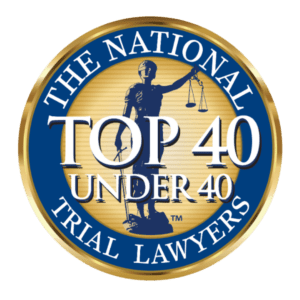
The ways we work as personal injury lawyers are shifting beneath our feet, and at the heart of that transformation is ChatGPT. What began in November 2022 as a conversational experiment by OpenAI has swiftly grown into a suite of capabilities now powered by GPT-4, capable of drafting, researching, and even providing strategic insights for complex legal matters. ChatGPT’s evolution from a simple Q&A partner to an enterprise-grade assistant reflects its growing reliability and the legal profession’s eagerness to harness its potential.
Transforming Document Review and Medical Summaries
Firms across the country are quietly integrating ChatGPT into their day‑to‑day. Big‑law practices have begun experimenting with Deep Research features. At the same time, midsize and boutique firms find that the model can distill case law, draft pleadings, and suggest lines of questioning more rapidly than any junior associate could alone. According to a recent Business Insider survey, partners like Paul Weiss and DLA Piper urge their teams to adopt generative AI, while insisting on stringent human review, to supercharge tasks without compromising accuracy.
ChatGPT shines brightest in personal injury, where thousands of pages of medical records can make or break a case. The model can produce concise summaries highlighting critical events, timelines, and red flags by ingesting scanned treatment notes, hospital charts, and diagnostic reports. This capability frees attorneys from sifting through reams of paper and helps uncover patterns, such as prior injuries or comorbidities, that shape causation arguments and settlement strategies.
Crafting More Persuasive Demand Letters
Demand letters, once crafted through a laborious back‑and‑forth between attorneys and paralegals, now emerge from ChatGPT with a persuasive narrative arc: facts are laid out, damages are presented compellingly, and the tone is calibrated to reflect both empathy for the client and resolve in negotiations. Law firms routinely refine the AI’s first draft, adding firm‑specific language and aligning with local court norms. Still, the time saved is indisputable, translating directly into more time spent strategizing and connecting with clients.
Redefining Legal Research with AI
Research—long the backbone of legal practice—has been reimagined by large language models. Instead of manually querying multiple databases, attorneys can pose complex questions to ChatGPT or its peers, such as Claude or Google Gemini, and receive synthesized analyses of case law, statutes, and regulatory developments. This democratizes deep research, ensuring even smaller firms can access high‑level insights quickly and accurately, rather than paying for expensive, siloed research platforms.
Navigating Ethical and Regulatory Waters
Yet with great power comes great responsibility. Recently, a U.S. advisory committee moved forward proposals to regulate AI‑generated evidence, insisting that any output offered in court meet the same reliability standards as expert testimony under Rule 702 of the Federal Rules of Evidence. This step underscores the judiciary’s intention to hold AI to traditional legal standards, ensuring that ChatGPT’s suggestions are subjected to rigorous human validation before they guide case‑deciding arguments.
Getting Started: Implementing ChatGPT at Your Firm
How does a firm begin? First, it’s vital to map out specific pain points—intake questionnaire review, document drafting, or research bottlenecks—and pilot ChatGPT in those areas. Training staff on prompt engineering ensures the model’s outputs match the firm’s voice and standards. Integrations with practice management platforms can route drafts and summaries into case files, while compliance checks and audit trails maintain ethical safeguards and client confidentiality. Continuous feedback loops, where attorneys rate and refine AI‑generated content, help the tool learn the firm’s unique preferences and legal nuances.
Human–AI Partnership for Competitive Advantage
Embracing ChatGPT is not about replacing lawyers but amplifying their strengths. It’s a strategic move that frees us from repetitive tasks, unlocks deeper insights from voluminous data, and elevates every aspect of client service. For personal injury firms eager to stand out in a crowded market, becoming fluent in AI boosts efficiency and signals to clients and the bar alike that you are at the forefront of legal innovation.
Looking Ahead: The Future of Personal Injury Law
As we look ahead, the firms that master this balance—integrating ChatGPT’s speed and breadth with the irreplaceable judgment of experienced attorneys—will set the new standard for high‑quality, client‑centered representation. In that intersection of human expertise and artificial intelligence lies the future of personal injury law.
Frequently Asked Questions
How can ChatGPT improve client intake and screening?
ChatGPT can serve as an always‑on intake assistant, embedded on your website or tied into your CRM. It asks prospects the right questions—date, location, type of injury—and flags anything that needs immediate attention, like potential head trauma. Every response is captured in your case‑management system, ensuring no lead slips through the cracks and freeing your team to focus on high‑value follow‑up.
What safeguards ensure medical records aren’t exposed?
Before you feed any records to ChatGPT, remove or mask all direct identifiers—names, dates of birth, policy numbers, etc. Only submit the smallest excerpt necessary for the task at hand. Encrypt files both in transit (TLS 1.2+) and at rest (AES‑256+). And critically, execute a HIPAA‑compliant Business Associate Agreement (BAA) with your AI vendor so they’re contractually bound to protect PHI.
Can I keep my data entirely on‑premise?
Absolutely. If sending even de‑identified excerpts off‑site makes you uneasy, you can deploy self‑hosted or private‑cloud LLMs. Options include fine‑tuning open‑source models behind your firewall or using private instances through a cloud provider that supports enterprise BAAs. That way, all data stays under your firm’s roof.
How do we ensure AI outputs meet our quality standards?
Treat ChatGPT drafts as your starting point, not the finish line. Incorporate a prompt‑engineering guide so everyone uses consistent inputs, then have attorneys review and annotate every output. Maintain an internal feedback loop: rate each summary or draft, log what worked (and what didn’t), and periodically update your prompts to reflect evolving firm style and jurisdictional nuances.
What ongoing measures keep us compliant with privacy laws?
Implement role‑based access controls so only approved staff can submit or view AI‑generated content. Keep detailed audit logs—who accessed what, when, and for which matter. Conduct regular risk assessments that include your AI workflows, and update your policies whenever you introduce new integrations or features. Compliance is a process, not a one‑time setup.
Which use cases deliver the fastest ROI?
Start with high‑volume, high‑repetition tasks. Medical‑record summarization and demand‑letter drafting typically pay back in days, not months. Once you’ve ironed out your workflow there, expand into deposition prep, research queries, and even data‑driven settlement benchmarking. Each successful pilot builds confidence—and frees up more bandwidth for strategic work.








